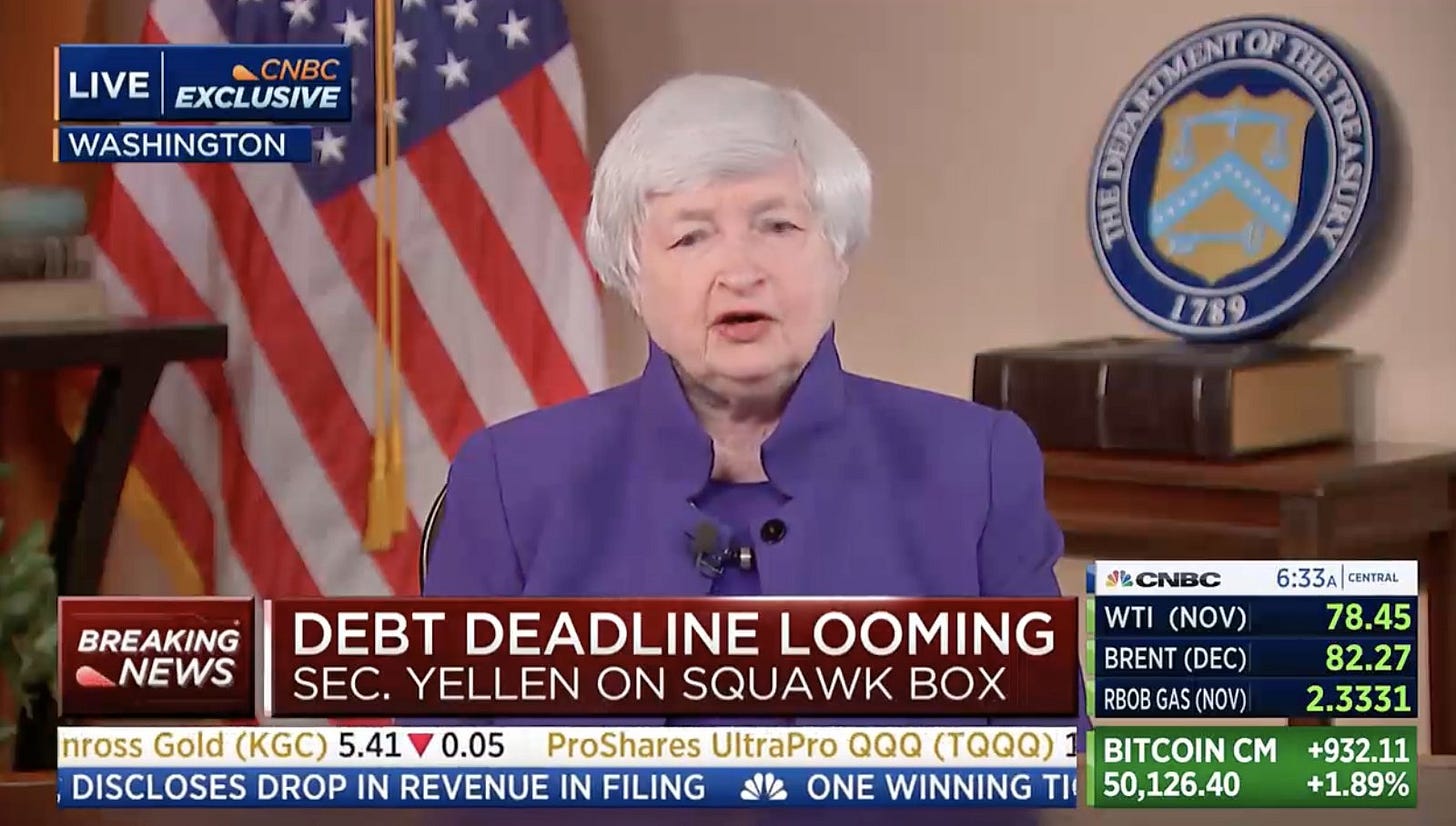How to know you've made it
Plus wealth taxes are the wrong way to tax the wealthy
In this issue:
How to know when you've made it
Wealth taxes are the wrong way to tax the wealthy
A beginner’s guide to a confusingly smooth butt
How to know you’ve made it
For those of us who have been in the space for a few years the pace of development in the last twelve months has been dizzying. Corporations, Senators and countries are buying Bitcoin. People are making billion-dollar market purchases. El Salvador made Bitcoin legal tender, Dubai made it tax exempt and China banned it entirely but every government is now treating Bitcoin as real and here to stay. Consider this quote from Matt Levine’s most recent Money Stuff newsletter (emphasis mine):
"… the only way it can work is if people trust that Bitcoin won’t go to zero … I would say that five years ago that claim was not broadly persuasive. I would say that now it is?"
This is a small throwaway line in a long and interesting section talking about the also interesting Bloomberg expose on Tether’s finances. Both the Bloomberg piece and Matt Levine’s commentary piece are worth your time - but I’m most interested in the background observation: everyone now knows that Bitcoin is not going to zero. It really wasn’t long ago that "Bitcoin is a bubble that will soon subside" was conventional wisdom.
You can also see this increased seriousness in the behavior of institutions. Consider this graph for example, which shows the relative price premiums of the Bitcoin futures markets on Derebit (red) and CME (yellow):
Since the beginning of Uptober the relative price on CME has gone from a mild discount to a substantial premium, overtaking the premium on Derebit for the first time. CME is a US-based exchange where all the futures settle in USD, Derebit is offshore and settles directly in bitcoin. That means Derebit tends to serve retail investors who are already invested in crypto and CME is much more likely to serve institutional investors who are entering the market for the first time. CME overtaking Derebit suggests that the institutions who are considering acquiring Bitcoin exposure are even more bullish than the retail investors who already invested.
As we talked about on Thursday the conventional wisdom is that this price action represents the market anticipating the approval of a Bitcoin ETF.1 There are a lot of small circumstantial hints that it might be coming soon - an ETF tracking stocks with significant exposure to Bitcoin was just approved, Coinbase tweeted and then subsequently deleted an announcement about an impending ETF, SEC Chair Gary Gensler has been increasingly positive in his tone towards Bitcoin.
Especially interesting to watch is recent actions from global ETF manager VanEck, who withdrew their Ethereum ETF application just two days after filing it but did not withdraw their application for a Bitcoin ETF and started setting up fidelity bond coverage instead.
The timing on this makes sense to me - fears that Bitcoin will go to zero are no longer particularly salient and there are many more ways to get exposure to BTC in traditional markets so it is harder to make the case that investors can or should be "protected" from Bitcoin. Approving a Bitcoin ETF would also give the SEC more room to crack down on stablecoins and DeFi tokens while still pushing back on the idea that they are anti-crypto.
A true Bitcoin ETF used to be a pipe dream, now it seems inevitable. Wild times.
Wealth taxes are the wrong way to tax the wealthy
In American politics Bitcoin is typically seen as a right-of-center issue, mostly associated with Libertarianism and conservative political views. So people are sometimes surprised to learn that I consider myself liberal and that I broadly support progressive taxation, wealth redistribution and social safety nets. I think society works better when no one is left behind.
But there are right ways and wrong ways to raise funds for government programs. Lately there has been increased discussion and support for some approaches that I find very troubling. Elizabeth Warren (who I have written to before) has been advocating for a wealth tax and Janet Yellen (the US Treasury Secretary) recently floated the idea of taxing unrealized gains at a virtual conference.
These proposals sound like garden variety tax-the-rich progressive policy but they are actually quite radical and destructive. Taxing unrealized wealth is not the same as taxing sales or income and treating it as the same is taking advantage of the average voter’s difficulty in distinguishing between nominal price and real value.
To tax someone’s wealth someone else has to decide how much wealth they have - that sounds simple but it is not. The only objective way to measure the value of something is to sell it - everything else is a guess. You can’t know how much something is worth from its properties because value is not a property of the thing being sold, it’s a property of the market where it’s sold. In other words, everything is worth what someone will give you for it. No more, no less. Taxing someone’s wealth either means forcing them to sell everything they own or allowing an unelected bureaucrat to decide their tax burden by assigning a value to their possessions.
To be clear, it isn’t impossible to assign value to possessions. That’s how real estate taxes work, for example. There are also countries that have a wealth tax. My point is not that such a policy is logistically impossible. My point is that it is a bad idea because it empowers unelected officials to extract wealth from citizens in ways that are outside of congressional supervision.
Wealth taxes also leave investors powerless to defend themselves against inflation. Bureaucrats in one department inflate prices by printing money and bureaucrats in another department tax you for the privilege.
By all means tax the wealthy. But measure their wealth with markets. Anything else is the tax equivalent of a planned economy.
Other things happening right now:
A fairly common family of questions from readers are around the various cryptocurrency interest-bearing accounts. (Editorial Note: I used to use BlockFi to earn yield on a subset of my holdings but I no longer do.) Anyone considering depositing their crypto into an interest bearing account should check out this ProHashing analysis of the various services, which explores the pros and cons of different options in thoughtful detail. [h/t reader GO]
Aesthetically I have no complaints about the symbol for satoshis (the smallest unit of Bitcoin) that Bitcoin Twitter has recently become enamored with, but it is pretty obviously just the ETH logo with some dots. Unless ETH goes away relatively soon I don’t see this as a realistic solution for a satoshi symbol.
Credit to @CryptoCobain for an absolutely spot on prediction that nailed Bitcoin’s movement throughout 2021 all the way back in January:
Presented without comment:
An ETF is an exchange traded fund - a kind of financial wrapper around an underlying asset which the ETF holds on behalf of investors. Shares in the ETF mirror the prices of the underlying assets that back them which lets investors get exposure to that asset (in this case Bitcoin) without actually needing to hold it themselves. The launch of ETFs for gold in 2004 started a massive, multi-year run up in the price of gold.








